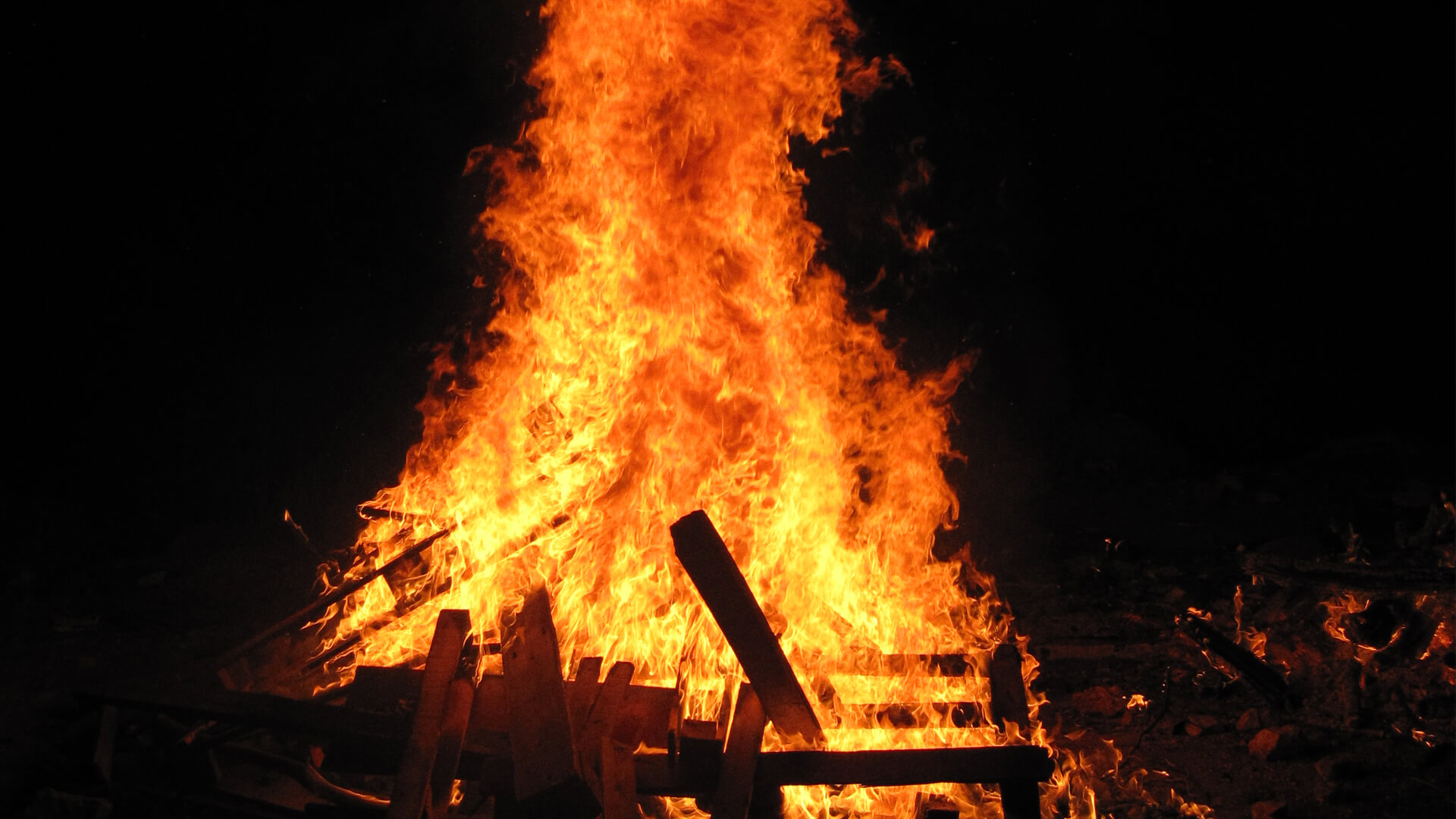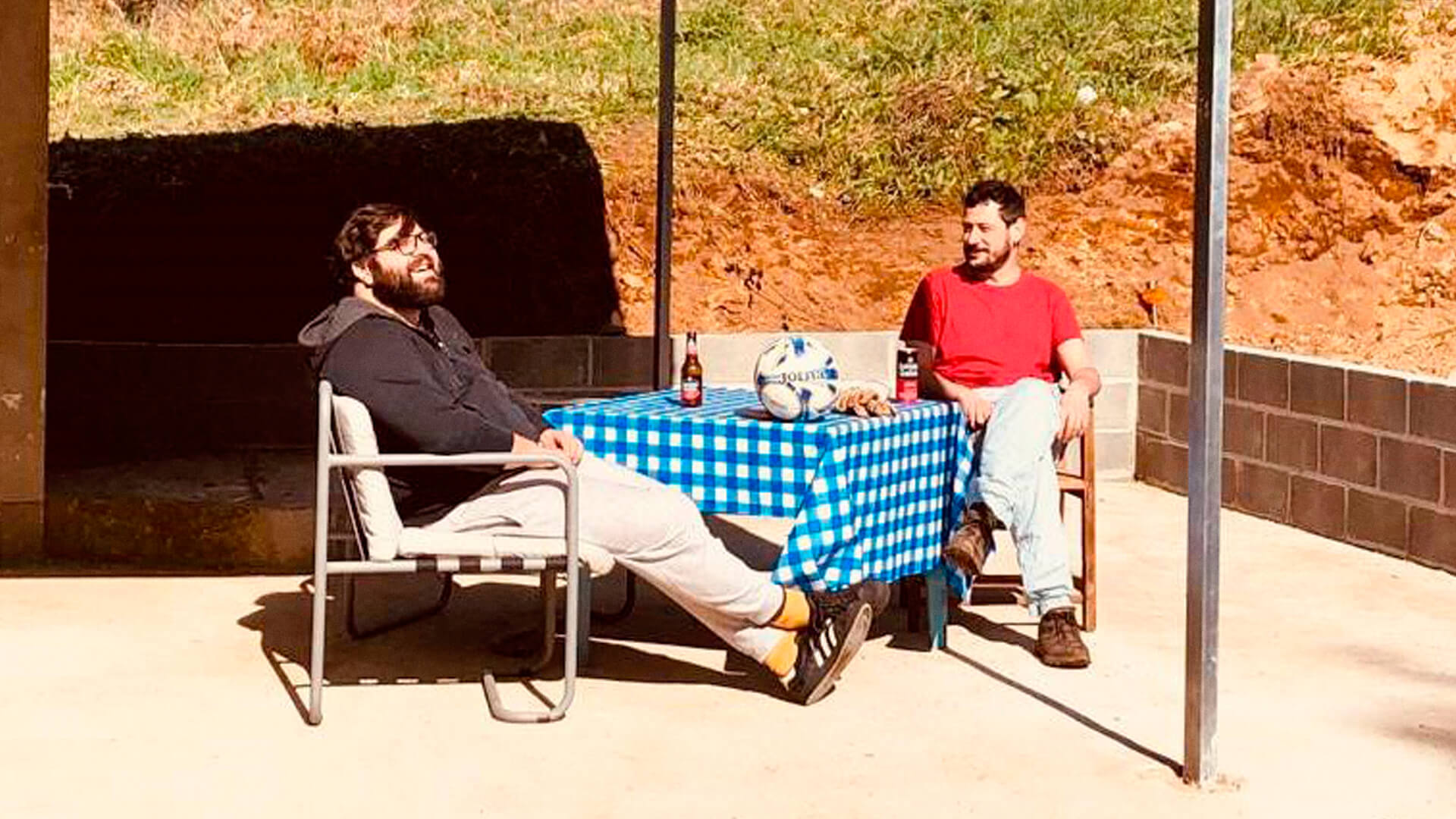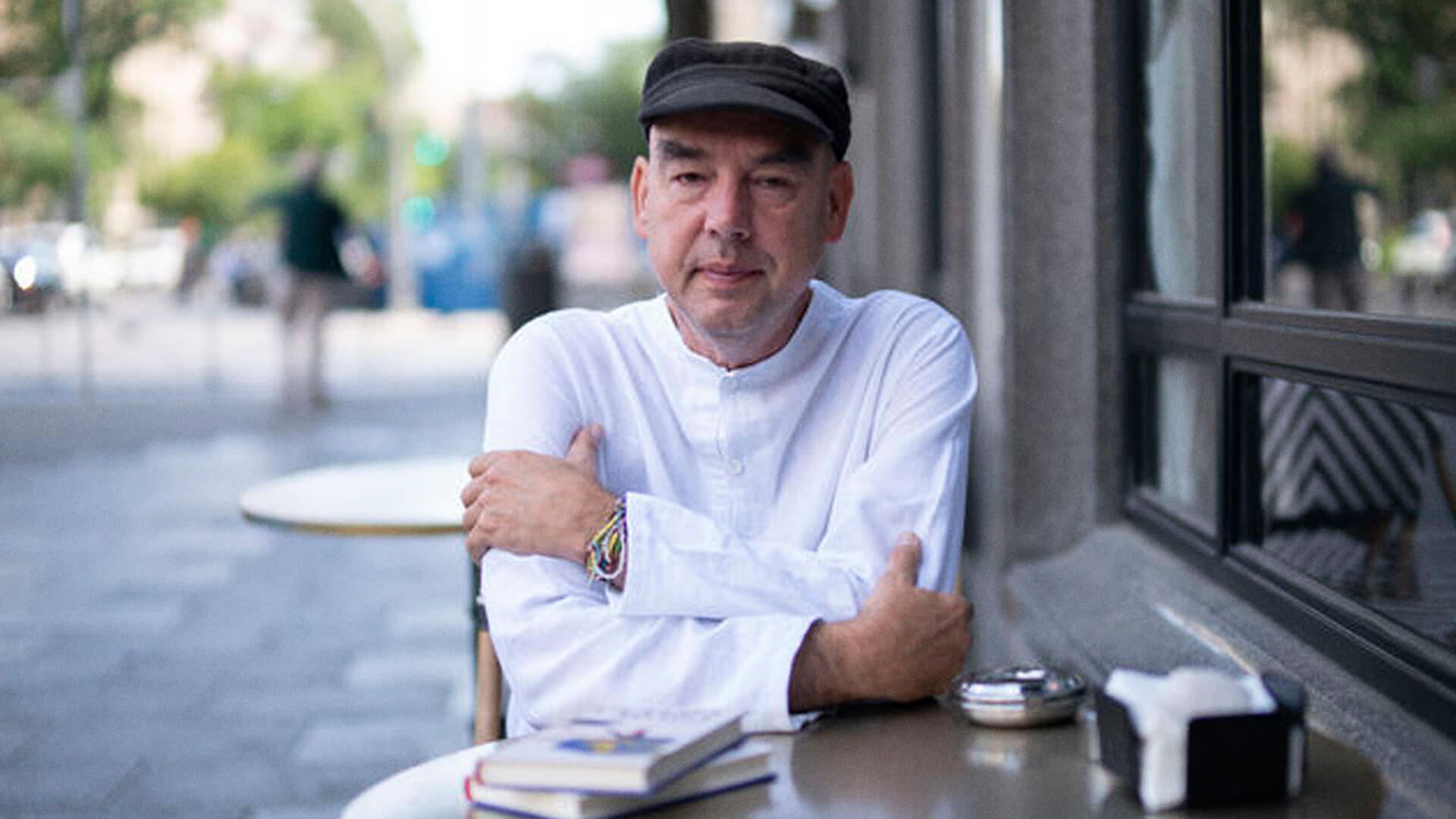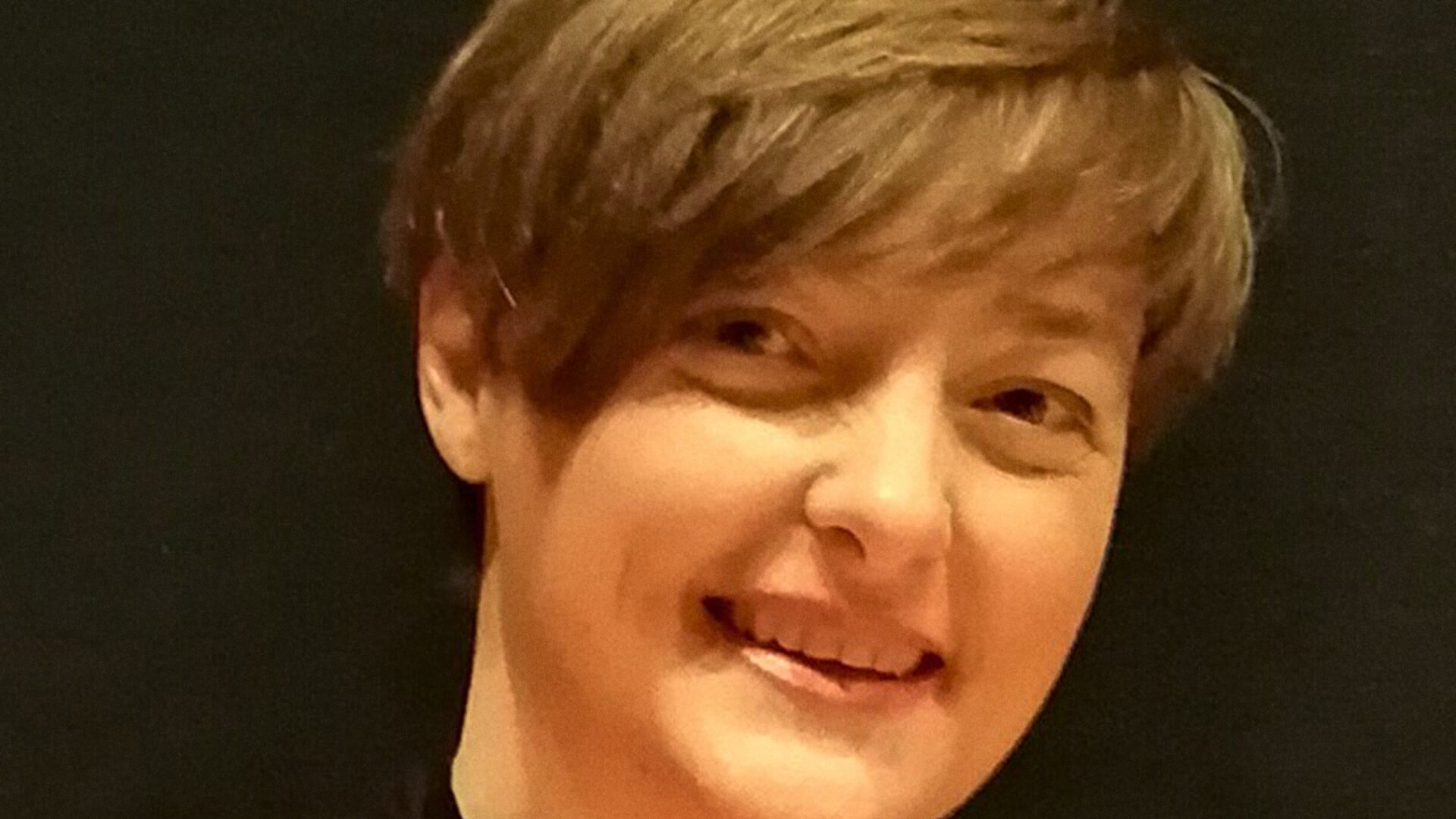

We would sit around the fire and listen. It could be in a town square, around a table in a bar, or on someone’s doorstep in the cool of the evening. This is how culture began, and it is why we can still reflect on ourselves. Ursula K. Le Guin wrote that listening is making a connection and that two people talking together form a community of two. Following the events of the last few years, we need to re-embrace stories, thinking about and constructing them together, using our imagination and sharing the fire (and its ashes).
A conversation about oralities, memory and the construction of collective imagination through stories and songs. In other words, it is a way of feeding the fire.
Moderators: Los Bárbaros
Participants: Santiago Alba, Sandra Araguás and Pep Bruno

Los Bárbaros is a project by Javier Hernando and Miguel Rojo questioning, from various perspectives, concepts around contemporary society, power and the way in which we relate to each other, working between reality and fiction.
View more
They have created a corpus of works tackling the same issue through the stage, visual arts and literature. They like humour, imagination, memory and invisible things. Their work has been shown in spaces such as La Casa Encendida, Azkuna Zentroa, CIAV-Naves Matadero, Teatros del Canal and CCC-Conde Duque. They attempt to create spaces where we can meet, reflect on, and question the contemporary world.
© Rocío Bello

Writer and essayist, he studied philosophy at the Complutense University of Madrid. He worked as a scriptwriter in the 1980s for the iconic television programme La bola de cristal and has published more than twenty books on politics, philosophy and literature, as well as three children’s stories and a play.
View more
His works include the essays Las reglas del caos (finalist for the 1995 Anagrama Prize), La ciudad intangible (2000), El islam jacobino (2001), Vendrá la realidad y nos encontrará dormidos (2006), Leer con niños (2007, republished in 2015), Capitalismo y nihilismo (2007), El naufragio del hombre (2009), Noticias (2010) and Penúltimos días (2016). Santiago has lived in the Arab world since 1988 and has translated the works of the Egyptian poet Naguib Surur and the Iraqi novelist Mohammed Jydair into Spanish. He has also taught literature for many years at the Cervantes Institute.
His latest books include Ser o no ser (un cuerpo) (2017), Todo el pasado por delante (2017) and Nadie está seguro con un libro en las manos (2018). In 2019, he published Última hora, a collection of his contributions to the radio programme Carne Cruda. He is a regular contributor to various media (Público, Cuarto Poder, CTXT, Ara, eldiario.es, El País, etc.). His latest book is called España (2021).
© Silvia P. Cabeza

Stories came into Sandra’s life in 2000, when she embarked on her first work of compiling oral tradition in the Sierra de Guara. Little did she know at that time that its people and their stories would shape her life and lead to a career in storytelling.
Since then, Sandra has compiled oral traditions from over 350 people who have passed on their memories and storytelling traditions. During this journey, her great mentor Elías Mairal explained that there was no point in collecting oral stories if they were not retold or put to paper to reach more hands, eyes and mouths.
Words, both spoken and written, are at the heart of Sandra’s work. These are the traditional stories heard in village kitchens across Aragon or in typical storytelling sessions. Spreading oral tradition is her mission, orality is her essence, and words are her means of expression.
Sandra tells stories in libraries, primary and secondary schools, reading promotion campaigns, oral workshops, book fairs, cultural weeks, festivals, various events promoting the Aragonese oral tradition, and in institutions and events such as La casa de títeres in Abizanda, Festival Pirineos Sur, Huesca es un cuento, Programa Provincia Inquieta de Cáceres, Hellín te cuenta, Atlántica, La sierra encuentada and Una olla de cuentos. But above all, she loves to go to the streets of villages to tell stories, where she can engage with people.

He holds a Degree in Spanish Studies, a Degree in Literary Theory and Comparative Literature, and a Diploma in Social Work. He has been a professional storyteller since 1994. Over the years, his stories have been heard by all kinds of audiences in diverse settings, including theatres, libraries, primary and secondary schools, cafés, cultural centres, universities and theatres throughout the Americas, Africa and Europe.
View more
He has written numerous articles on oral storytelling for specialised journals and websites and two complete studies on the history of oral storytelling in Spain and the figure of the oral storyteller. He has published twenty-nine books of stories (for children and adults). He is a founding member of AEDA, the Spanish Professional Storyteller’s Association. He is also a founding member of Palabras del Candil, a publishing house specialising in oral storytelling. Since 2019, he has been telling stories weekly on Spanish National Radio (RNE) with Ciudadano García.